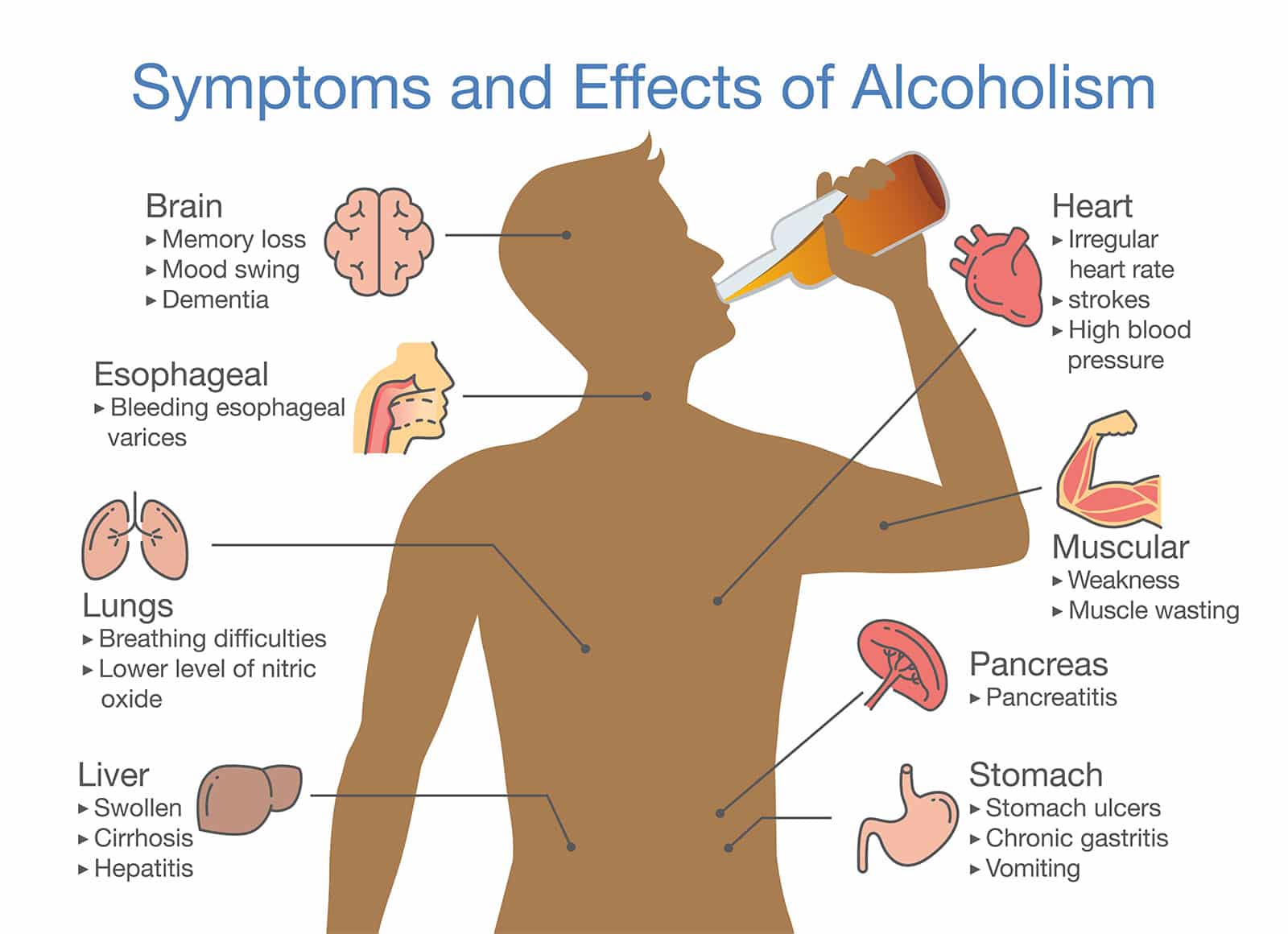The liver is the body’s second largest organ. The liver eliminates toxins from the blood, maintains correct blood sugar levels, and performs many other vital functions to keep the body healthy. When someone consumes too much alcohol, scar tissue builds up on the organ. Eventually, proper liver function ceases and may lead to liver failure.
Fortunately, a person’s liver is self-healing. It constantly regenerates. This means that when they quit drinking, it is possible to repair and heal any damage that has occurred. When an individual recognizes a problem, it is imperative to seek assistance. At the Illinois Recovery Center, our team is ready to help people conquer their alcohol addiction to live healthier lives.
Table of Contents
How Long Does it Take the Liver to Heal Itself?
Since the liver is constantly regenerating itself, healing can occur quickly. It may commence a few days after a person takes their last drink. However, severe damage that results from years of alcoholism or toxin buildup may take months or years to heal. By following a balanced diet, exercising regularly, and avoiding toxins, an individual can speed up the liver’s healing process.
Can the Liver Heal Itself from Alcohol Misuse?
A person’s liver is a versatile organ capable of repairing itself. Even after years of heavy drinking, healing can occur. After this organ has returned to normal, drinking responsibly without causing more damage is possible. However, a person must try not to place their liver under too much stress.
Heavy drinkers can develop diseases like alcoholic hepatitis. Luckily, the early stages of alcoholic hepatitis are reversible. It is essential to consult with a physician who can prescribe medicine that lowers inflammation.
On a negative note, severe damage that leads to liver cirrhosis is irreversible. For severe cases, a liver transplant may be recommended to save the person’s life. When a person’s liver goes through scarring, it is likely to remain in that state indefinitely which may lead to more severe diseases like ascites. Even though this is a severe condition, it can be managed when a person quits drinking and seeks medical help.

Signs the Liver is Healing from Alcohol
When a person stops misusing alcohol, their body will enter a withdrawal state. This cleansing of toxins brings unpleasant symptoms to the body. Luckily, in a short amount of time, healing begins. There are specific signs that indicate a person’s liver is healing.
- Heightened Amino Acid Regulation. Since a person’s liver processes proteins, a healthy liver will begin regulating amino acids that the body cannot store. The physical signs that may manifest are bloating, abdominal pain, and diarrhea.
- Improved Immunity. A person’s liver is an organ that detects, captures, and cleans bacteria from the body. As it heals, a person will be less likely to contract viruses and similar illnesses.
- Lowered Chance of Hypoglycemia. When people drink too much, their blood sugar can reach dangerous levels. After they begin to heal, the person will have more energy, and their sugar levels will stabilize.
- Better Blood Clotting. When alcohol floods the liver, the production of blood platelets decreases. When the liver becomes healthier, a person will clot easier after a cut, which is the expected response of the body.
- Decreased Risk for Septic Shock. A person’s liver is responsible for filtering the body of toxins. If someone drinks too much, this organ cannot keep bacteria from entering the bloodstream and causing sepsis. When the liver heals, a person has a lower risk of developing this dangerous condition.
Besides the internal improvements, a person will also notice external healing symptoms. For instance, they will have higher energy levels. Since digestive issues will improve, a person may enjoy a stabilized weight and less stomach pain. After the liver is free of toxins, “brain fog” will be lessened.
This means that an individual will perform better at work and will be able to enjoy time with family and friends. Also, their appearance will improve. A person’s eyes and skin will begin to look more lively. When a person questions the health of their liver, a doctor can perform tests to check its condition and function.
How Alcohol Affects the Liver
The liver works by breaking down and eliminating various wastes, including alcohol. A person’s liver breaks down approximately 90 percent of the alcohol consumed. Unfortunately, the liver has its limits and can only manage a certain amount of alcohol at one time.
One drink can take an hour to be processed. Each future drink takes longer. When a person drinks too much, the alcohol is not metabolized and remains in the bloodstream. As a result, they become drunk and experience cognitive issues.
If someone misuses alcohol for long periods, they may have already destroyed liver cells. This leads to scarring and other disorders.
- Alcoholic Fatty Liver Disease. This condition starts when alcohol intake exceeds a safe dose of alcohol each day, causing fatty deposits in the liver.
- Alcoholic Hepatitis. This form of hepatitis presents as acute liver inflammation. It causes cells to die. It may result in permanent scarring as well.
- Alcoholic Cirrhosis. When a person reaches the worst stage of liver damage, tissues are destroyed. Their liver becomes increasingly scarred, referred to as alcoholic cirrhosis.
- Liver Cancer. Alcohol is classified as a Group 1 carcinogen by the International Agency for Research on Cancer because it induces hepatocellular carcinoma (among other cancers) in humans.

How Much Alcohol Can Cause Liver Damage?
New research has studied the effects of alcohol on the liver. The adverse effects depend on a person’s weight, gender, and underlying health conditions. Genetics plays a role as well.
Females absorb more alcohol from each drink, which places them at a higher risk of developing liver diseases. The liver may become damaged after consuming two or three alcoholic beverages daily.
When a person binges drinks or consumes up to five drinks at a time, there is a higher risk of developing liver damage. Individuals who drink excessively for many years are likely to develop alcoholic hepatitis. The longer the drinking persists, a person becomes more likely to develop cirrhosis. Symptoms of liver problems are:
- Liver tenderness
- Unplanned weight loss
- Loss of appetite
- Nausea
- Fatigue
- Dark urine
- Drowsiness
- Severe liver inflammation causes jaundice and swelling

When is it Time to Stop Drinking?
Many people begin drinking alcohol for fun. Binge drinking may seem not harmful, but it opens many problems that can be harmful in the long run. Binge drinking may form into an addictive habit that is difficult to quit. As of 2019, the National Survey on Drug Use and Health revealed that approximately 15 million people had an alcohol misuse disorder.
When you succumb to alcohol abuse, you build a tolerance for alcohol and up drinking more, leading to substance abuse disorder. Also, you may be making excuses to keep drinking. People around you may notice your physical changes and poor hygiene. Drinking in large amounts for prolonged periods causes negative health consequences. It is essential to seek medical advice from a healthcare provider.
Our staff at Illinois Recovery Center provides successful detox and treatment for alcohol misuse. Our professional addiction treatment facility will minimize withdrawal symptoms and uphold safety throughout the process. Our peaceful environment helps a person focus on a life of sobriety.
When you learn coping mechanisms that keep you on a sober path, you can stay away from alcohol in the long term. As you stop drinking, your body and mind can heal. Let Illinois Recovery Center help you with that. For more information about our services, Contact us today.
Published on: 2024-03-27
Updated on: 2024-07-12



